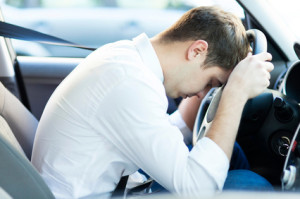Contributor: Article Contributed by Crystal Karges, MS, RDN, IBCLC for Addiction Hope
 Countless Americans across the United States take a medication prescribed by their health care physician. This can include painkillers, sleeping aides, mood stabilizers, antibiotics, stimulants, depressants and more.
Countless Americans across the United States take a medication prescribed by their health care physician. This can include painkillers, sleeping aides, mood stabilizers, antibiotics, stimulants, depressants and more.
According to most recent reports, nearly half of Americans in the United States are taking one or more prescription medications [1]. While some medications may be used to treat, manage, and/or prevent chronic conditions, such as cardiovascular disease, many medications may be used or abused beyond the intent of the prescription.
Prescription Drug Abuse
Unfortunately, for many, prescription medications are used inappropriately and in ways that can put one’s life in severe jeopardy. An addiction to prescription medications can develop when drugs are ingested improperly, taken without the supervision and regulation of a physician/pharmacist, and used in ways or amounts not purposed by the ordering doctor.
The National Institute on Drug Abuse has identified three main classes of commonly abused prescription drugs, which include the following:
- Opioid Pain Killers
- Central Nervous System Depressants (for anxiety and sleep disorders)
- Stimulants (for ADHD and Narcolepsy) [2]
Many prescription medications are psychoactive and are often abused for mind-altering properties. Drugs prescribed by physicians that may be abused from the above categories include:
- Ritalin
- Adderall
- Dexedrine
- Xanax
- Valium
- Nembutal
- Lomotil
- Demerol
- Dilaudid
- Darvon
- Oxycontin
- Vicodin
- Fentanyl
Factors to Help Prevent Abuse
With more prescription medications being abused beyond their intent and used inappropriately, there are many factors that are looked at to consider measures that may help prevent this dangerous pathway.
A common association or pattern identified with prescription drug abuse is alcoholism or alcohol abuse. Research studies have found a connection between individuals with alcohol use disorders and prescription drug abuse, with young adults being at highest risk for dual abuse of alcohol and prescription drugs [3].
Alcohol and Prescription Drugs
The nonmedical use of prescription drugs combined with alcohol abuse is a risky behavior that influences may detrimental consequences. Researchers discovered that the more alcohol a person consumed and the younger drinking began, the more likely prescription drug abuse would result as well [3,4].
Other studies have revealed the startling influence alcohol abuse has on the risk of abusing prescription medications. For example, individuals who are dependent on alcohol are up to 18 times more likely to report nonmedical use of a prescription drug compared to those who are not dependent on alcohol [4].
The Influence of Alcohol on Abuse
 While the connection between alcohol and prescription drug abuse is still being understood, there is thought that the lack of judgment and impaired rational from alcohol abuse can lead to poor choices, such as misuse of prescription drugs.
While the connection between alcohol and prescription drug abuse is still being understood, there is thought that the lack of judgment and impaired rational from alcohol abuse can lead to poor choices, such as misuse of prescription drugs.
Many individuals may not necessarily understand the risk that is involved when mixing substances, particularly the dangerous interactions that can result when alcohol is mixed with prescription medication. Other people mistakenly think that because a physician prescribes a drug, it is somehow safe to consume.
While the Food and Drug Administration (FDA) regulate prescription drugs, they are deemed safe to use under the guidance and discretion of a physician who is qualified to prescribe for specific purposes.
The Consequences of Abusing Prescription Drugs
Misusing prescription medications with alcohol may seem harmless or even like the “fun” thing to do, but the reality is that the choice to do so can prove fatal. Consequences that may result include:
- Respiratory depression
- Unconsciousness
- Alcohol poisoning
- Violent crimes
- Blacking out
- Unplanned sex
- Death
If you or a loved one has been mixing prescriptions drugs with alcohol, take the steps you need to get immediate help. Your life could potentially be in jeopardy due to this dangerous combination, and seeking professional treatment can help you reclaim your life from these destructive addictions.
If you are struggling but do not know what to do, confide in a trusted person and take the first step towards recovery and healing.
Community Discussion – Share your thoughts here!
What are ways that you have safely managed your prescription medications?
References:
- “Prescription Drug Use Continues to Climb in the U.S.”, Webmd.com, http://www.webmd.com/news/20140514/prescription-drug-use-continues-to-climb-in-us
- “Prescription Drugs and Cold Medicines”, National Institute on Drug Abuse, http://www.drugabuse.gov/drugs-abuse/prescription-drugs-cold-medicines
- “Alcohol Abuse Makes Prescription Drug Abuse More Likely”, National Institute on Drug Abuse, http://www.drugabuse.gov/news-events/nida-notes/2008/03/alcohol-abuse-makes-prescription-drug-abuse-more-likely
- McCabe, S.E., et al. The relationship between pastyear drinking behaviors and nonmedical use of prescription drugs: Prevalence of co-occurrence in a national sample. Drug and Alcohol Dependence 84(3):281-288, 2006.
Last Updated & Reviewed By: Jacquelyn Ekern, MS, LPC on February 12th, 2015
Published on AddictionHope.com
